

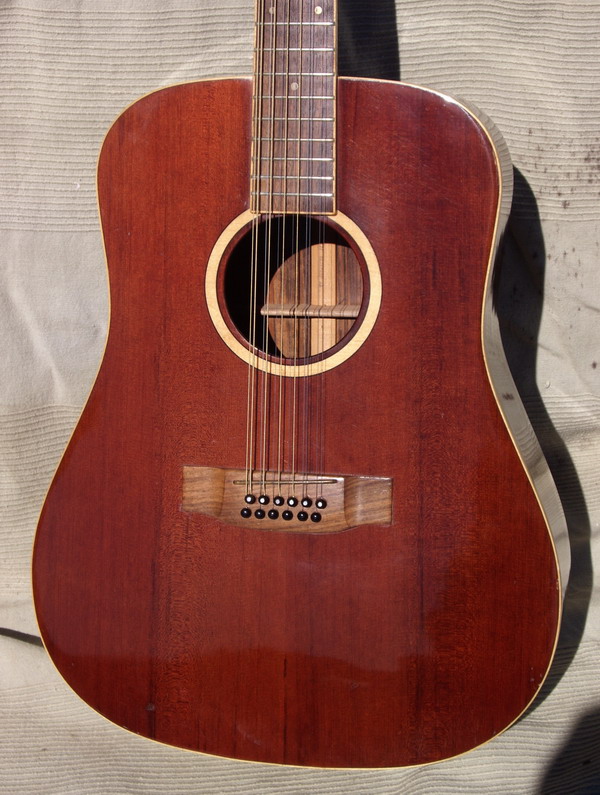
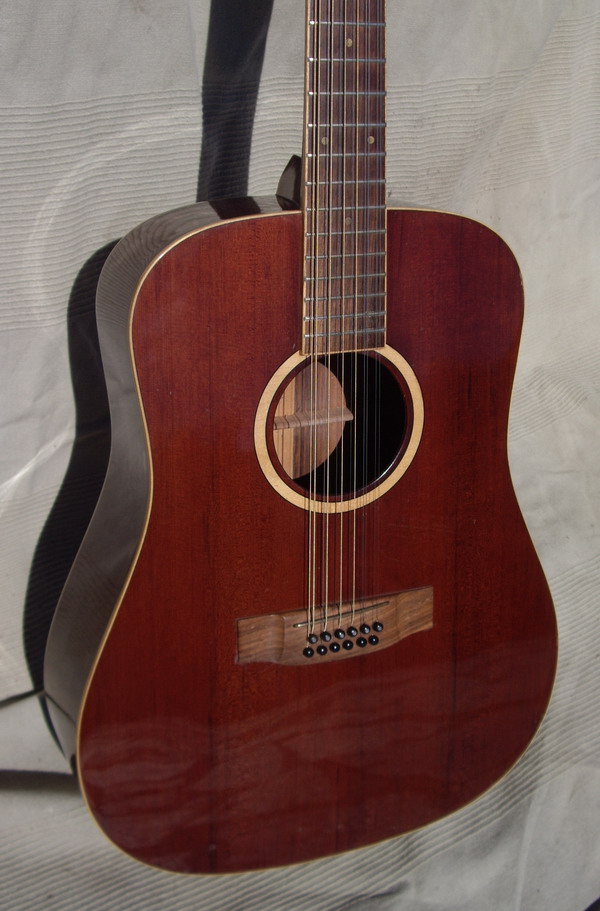
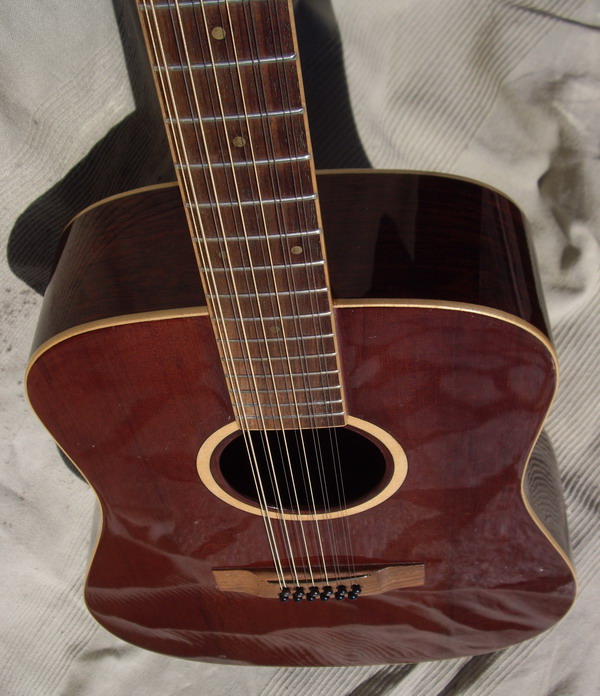

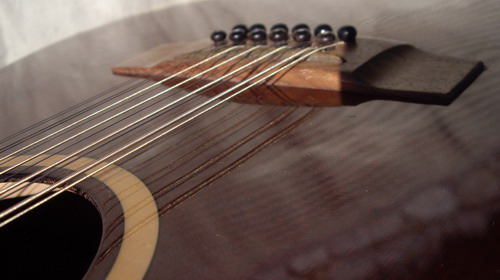
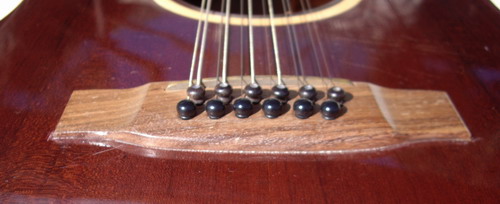
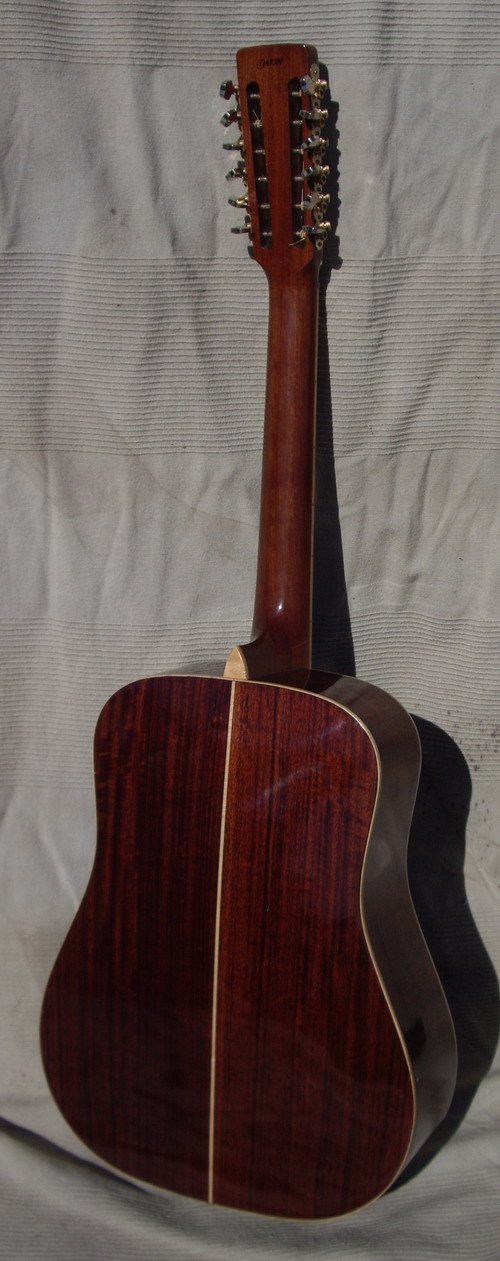
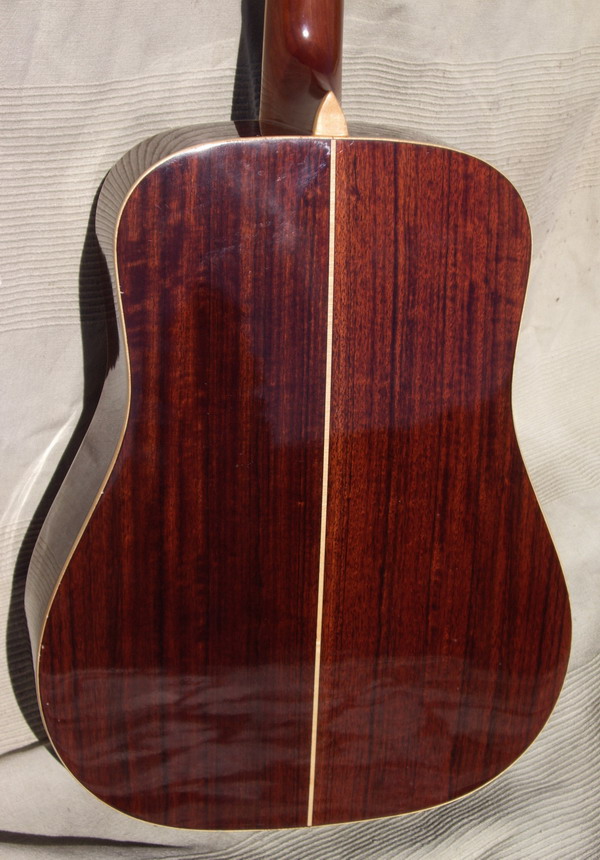
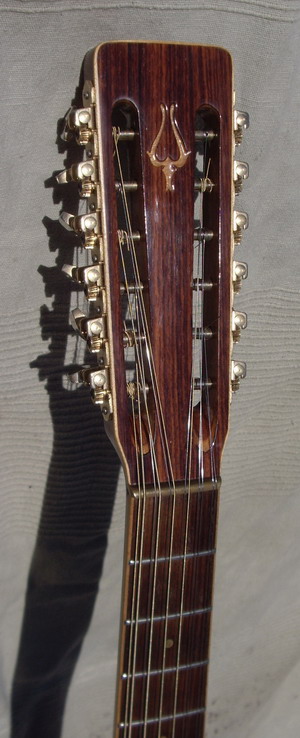
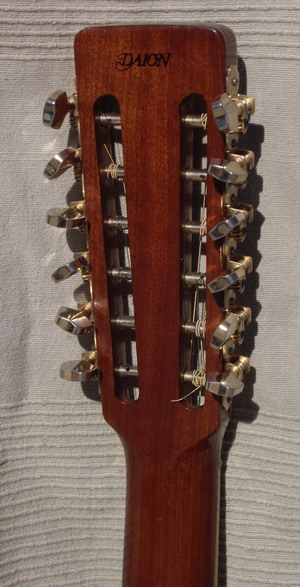
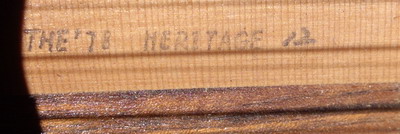
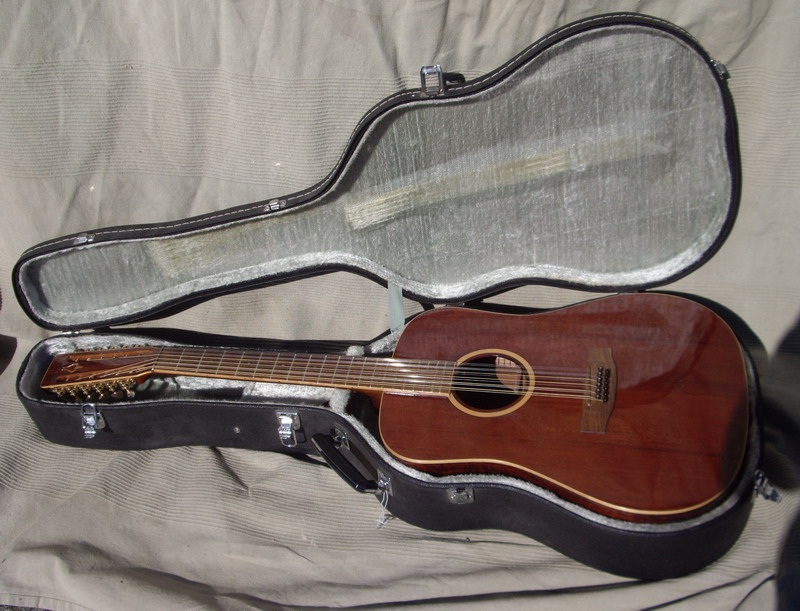
80's DAION THE 78 HERITAGE 12 Strings Ex+ cond. Code AC899 Stained Solid Top Brass Nut Brass Saddle Brass Inlays
A rare Daion twelwe-stringed Jumbo with beautiful rich tone! brass
nut and bridge, brass inlays in the neck, 48 mm wide by the nut and 56 mm by the
12th fret,
Solid Cedar top (Hand stained antique Mahogany finish)
Mahogany neck, back & sides
Rosewood fingerboard & bridge
Brass nut & saddle
Brass dot main positions & side positions
Rosewood headpiece facing with hand carved inlay (Daion Lyre logo)
1-piece Maple sound hole purfling
Maple bound headpiece fingerboard and body
Gold plated open-type enclosed machine heads
Source 1982 Daion Acoustic Guitars Catalog
In 1982 the suggested retail price for the 78 model was $479.
https://www.youtube.com/watch?v=V94W9gJrui8
The complex story of Yamaki guitars is entwined with the
histories of a number of other Japanese companies. In the late 1940s, brothers
Yasuyuki and Kazuyuki Teradaira started working for Tatsuno Mokko, an
instrument-building firm that later split into two different companies, one of
which was called Hayashi Gakki. In 1954 Hayashi Gakki was bought out by Zenon, a
large music distributor. In 1962 Yasuyuki left Zenon to start an instrument
distributor he called Daion, which means “big sound” in Japanese. In 1967
Kazuyuki left Zenon to produce classical guitars under the name Yamaki, an
auspicious Japanese word meaning “happy trees on the mountain.” By the early
1970s, Kazuyuki expanded the Yamaki line to include a large number of
steel-string guitars, many of which were based on C.F. Martin and Co.’s designs
and were distributed exclusively through Daion. Along with Yamaki guitars, Daion
sold instruments from Shinano, Mitsura Tamura, Chaki, and Hamox, some of which
were built by Yamaki at various times, and Harptone guitars, which they imported
from the US.
Sometime in the late 1960s, Daion began exporting Yamaki guitars to America,
where they were well received. By the early 1980s, however, Daion felt that the
Yamaki Martin-style guitars were getting lost among similar instruments from
other Japanese builders like Takamine, Yasuma, and C.F. Mountain, so they
redesigned the entire acoustic line and started building acoustic-electrics and
solid-body electrics as well as oddities like double-neck acoustics. They
dropped the Yamaki name and rebranded their instruments as Daion guitars. Daion
began an extensive advertising campaign to introduce the new line around 1982,
but this was a time when musicians were more interested in the new MIDI-equipped
synthesizers than in guitars. In 1984 Daion stopped importing guitars to America
and soon went out of business. Yamaki, on the other hand, survived the downturn
of the 1980s and now makes parts for other Japanese guitar companies."